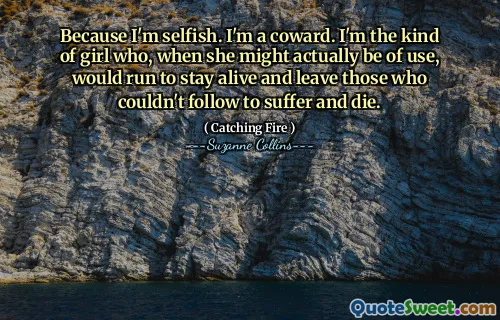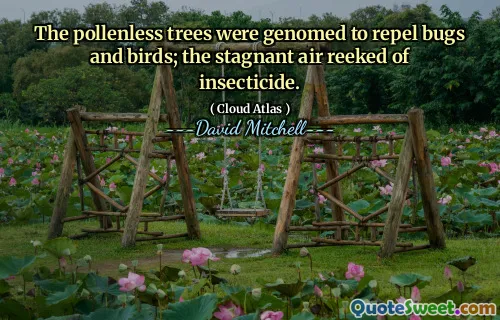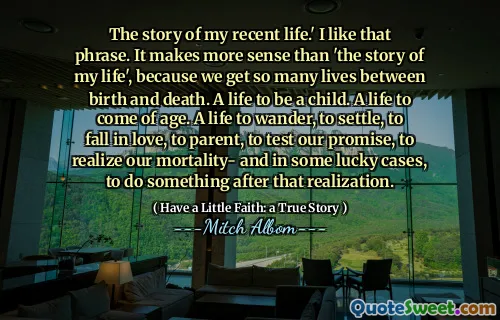
Because I'm selfish. I'm a coward. I'm the kind of girl who, when she might actually be of use, would run to stay alive and leave those who couldn't follow to suffer and die.
This quote delves into the complex, often uncomfortable reality of human nature, especially under extreme circumstances. It reveals a candid acknowledgment of one's flaws—selfishness and cowardice—that are typically regarded as moral failings. The speaker admits to personal fears and impulses that override the desire or obligation to help others, even when one might be able to make a difference. This honesty can evoke feelings of empathy, as many people recognize their own moments of hesitation or self-preservation instincts during crises.
More profoundly, this reflection underscores the conflict between individual survival and collective responsibility. In dire situations, the instinct to protect oneself can feel like a moral failure if it results in harm or suffering for others. The quote challenges us to consider the complexity of moral choices in survival scenarios, where the instinct to stay alive can sometimes collude with selfish motives at the expense of altruism.
Understanding this internal battle fosters compassion—not only for oneself but also for others who struggle with similar fears. Human nature isn't always noble; it’s messy, imperfect, and driven by primal impulses. Recognizing this can lead to better self-awareness, less judgment of the fears and flaws that we all share, and a deeper understanding of the moral dilemmas faced by individuals in life-and-death situations.
In a broader context, such honesty in literature reminds us that characters are multidimensional. It adds authenticity and relatability, encouraging us to reflect on our own morality, motivations, and the compassion we hold for ourselves and others.






